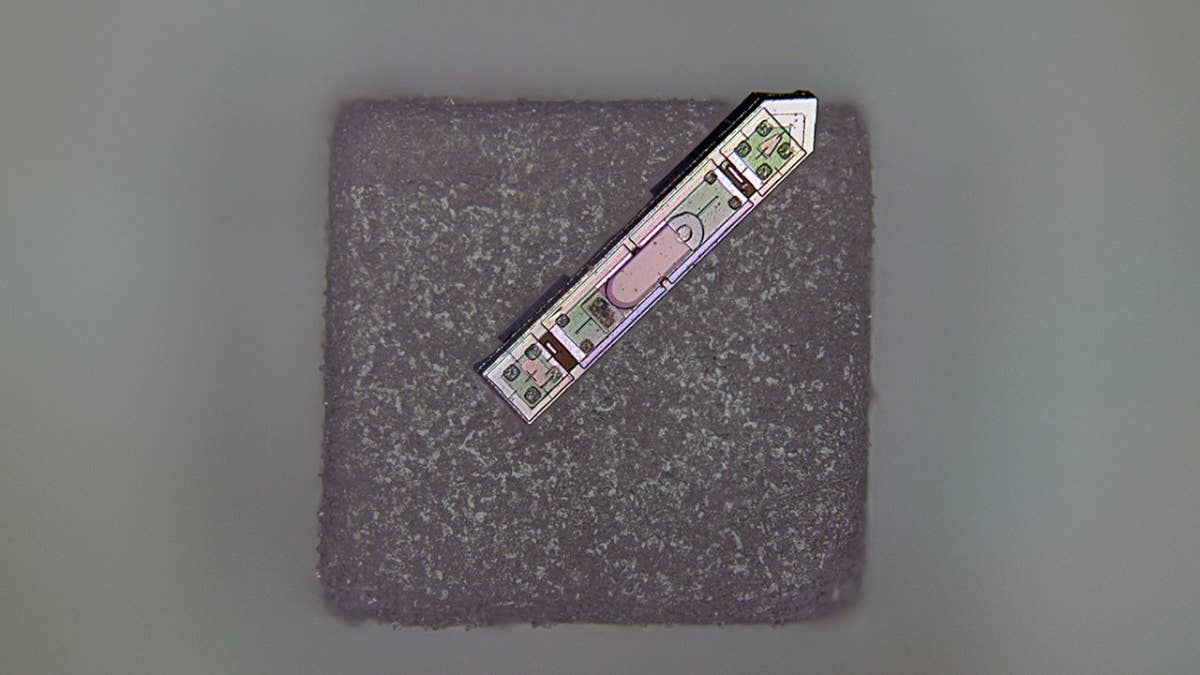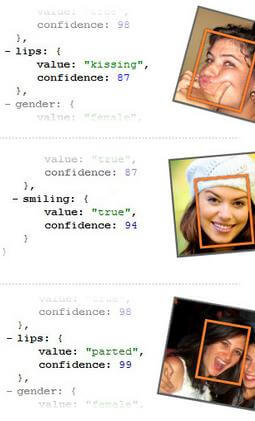If You’re Happy and You Know It—FACEBOOK WILL DETECT IT

Share
Does the internet know when you're smiling? That's a rhetorical question. Of course it can. Face.com, makers of a top notch facial recognition API, recently announced it was now capable of detecting the moods and expressions of people in photos it scans. Now, not only can the API tell who you are, it can say whether you were happy, sad, smiling, or even kissing. Face.com is the creator of the popular PhotoFinder and PhotoTagger apps on Facebook, so you may soon see that capability on the social network as well as among the 20,000 developers who use the Face.com API.
In related news, Facebook (using its own software) has been automatically using facial recognition to tag photos you upload since December of last year. They've already prompted the use of such facial scanning 2.7 billion times in the past six months! Learn more about their push for automated tagging in the video below. Facial recognition has grown so sophisticated, and cheap, that it seems it will soon leave no photo untagged, no mood unrecorded. If that idea makes you uneasy, don't worry, the social network of the future knows exactly how you feel.
Facebook quietly rolled out their in-house facial recognition (Photo-Tag Suggest) in the US last December, allowing users to tag their friends, teaching the social network who was who. Soon there after, Facebook could automatically suggest who was in each picture, making tagging quick and easy. It's a pretty awesome feature, and as of early June it was available "in most countries." On June 30th, Facebook announced it had prompted its 750 million active users 2.7 billion times to try the automated tagging process, often with the rather ambiguous box on your homepage labeled "Photos are better with friends." Naturally some privacy activists groups are crying foul, worrying that although the Photo Tag Suggest only works on your friends Facebook is collecting huge amounts of data on our appearance.
The Israeli facial recognition company ABC News interviews is Face.com, who we discussed a little over a year ago with the launch of their API. According to a recent newsletter, in the past twelve months their API has gone from a few dozen developers to over 20,000. That's very impressive, but when you look at all the Face.com API can do, it just makes sense. Not only is the code quite capable in finding faces and matching them against others in the databases you provide, it is now able to detect moods and expressions. The Face.com API can recognize when you are happy, sad, surprised, angry, or neutral and gives a confidence interval on that analysis. Now, when sorting through photos, a developer could use the API to organize them according to how you felt at the time the pic was taken. Similarly, the API can now detect smiles, parted lips, and kissing lips, further refining the classification. Among the suggested uses for the new capabilities would be reaction detection in live chats, filtering in dating sites according to mood in profile pics, and selecting the best photos for display.
When you start to imagine the potential applications for this technology, it gets really amazing. Sure, Facebook already is pushing to be able to recognize its 750 million users, but that just tells you what everyone looks like. Face.com could make it possible to guess at relationships based just on photos. Do you always smile when you're with someone? Maybe it's a sign you really like them. File that away in the metadata and maybe use it to make their suggestions mean more in searches, etc. Do thousands of people take geotagged pictures at a certain location every year? Maybe that location (stadium, landmark, etc) would like to find all the happy smiling people in those pictures and use it for marketing. Filing celebrity photos for press agencies, determining when customers are unhappy during recorded events, tracking how consumers feel during market research---there are tons of ways this technology could be applied.
And it's (mostly) free. 20,000 developers have already found uses for the Face.com API, and that's without any of the new mood and expression detection algorithms. As we've discussed before, many are simply cute apps for entertainment, but with more sophisticated capabilities we'll see more sophisticated applications. Soon, social networks, and really all internet sites, could use facial recognition technology that puts most security networks to shame.
What gets me about all of this is really how ubiquitous facial detection and recognition has become. iPhoto has it, Facebook has it, Google's Picasa has it - all the major players have brought it online, and we've seen it used in advertising stunts as well. Which means that it's probably also in many private places we don't know about - ATMs, office buildings, etc. Somewhere along the line, this fun and amazing capability sort of creeped in everywhere. Which I may not be totally against. Your face is part of your appearance, when you show it somewhere you are publicly displaying it. If you (knowingly) allow people to record you, you should recognize that they can use it to learn more about you, including your identity. That's part of living in a world filled with cameras and digital databases. That being said, I'm not sure it's as creepy as we may think. Most applications of this technology have, so far, been limited to applications you are aware of, not readily searchable by the public, and increasingly secure - Face.com now supports SSL on their API for instance.
Be Part of the Future
Sign up to receive top stories about groundbreaking technologies and visionary thinkers from SingularityHub.


If, however, we decide we can't live with computers being able to recognize us and our emotions, we better act fast. Face.com's API is only going to get more sophisticated in the next year, and we've seen similarly advanced detection algorithms for video as well. Give them much more time, it there'll be no telling what they'll be capable of...
*Photo created using Laser Eyes by OneByOne Design. Click image to try it for yourself.
Image credits: facebook, face.com, one by one design
Related Articles

How Scientists Are Growing Computers From Human Brain Cells—and Why They Want to Keep Doing It

These Brain Implants Are Smaller Than Cells and Can Be Injected Into Veins

This Wireless Brain Implant Is Smaller Than a Grain of Salt
What we’re reading



